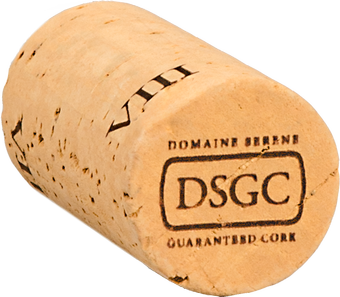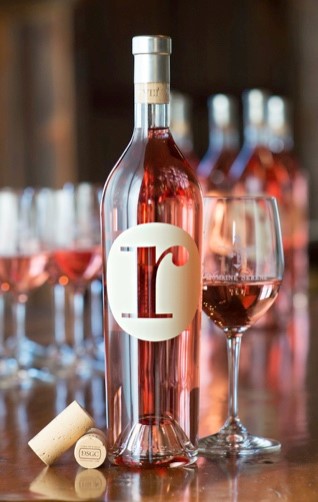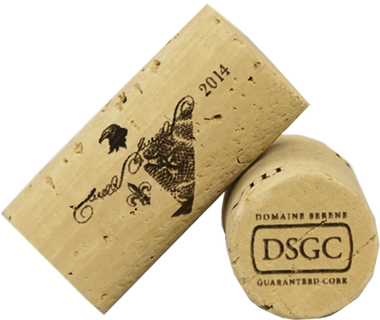Domaine Serene Announces Taint-Free Guarantee on All Natural Cork Closures

Domaine Serene Announces Taint-Free Guarantee on All Natural Cork Closures
Proprietary DSGC stamp on cork stoppers indicates a “Domaine Serene Guaranteed Cork,” assures consumers wine is unsullied by TCA cork taint beginning with 2014 vintage.
Dundee, Oregon

Yet another example of their unwavering quality commitment, winery founders Ken and Grace Evenstad envision the DSGC program as an outright refusal to tolerate cork-tainted wine under the Domaine Serene label going forward. Their confidence in offering this unprecedented certification of product integrity and purity is based on a cork-by-cork individual inspection that detects off-aromas, including but not limited to TCA, and quarantines any flawed corks. Inevitable higher cost associated with these rigorous new testing protocols will not be passed along by the winery in the form of increased prices to consumers.

Most industry experts agree that about five per cent of all wines sealed with natural cork closures display a musty taint. These wines are typically characterized as “corked.” The underlying flaw in corked wine is caused by a number of potent organic compounds: metabolic products of fungi naturally present in cork, or which have grown in the cork at various processing stages. The most significant is 2,4,6-trichloroanisole, or TCA. Cork taint’s effect in wine is often described as an unpleasant, moldy cardboard or wet dog character. In its most extreme form cork taint makes a wine completely unpalatable; and even in its most benign expression, TCA cork taint significantly inhibits fruit character and shortens the finish of a wine, undermining both its hedonistic and its financial value to the owner.

Cork taint can occur in any wine using natural cork, regardless of price, style or quality level. This poses an especially acute problem for wines of elite quality. Created to evolve slowly in the bottle, these “collector’s wines” often do not reach peak drinkability until many years after release. High-quality natural corks allow close to 1 milligram of oxygen to enter the bottle each year, just the right amount of air to allow age-worthy wines to mature and develop complexity as their tannins gradually soften. Domaine Serene prides itself on crafting elegant, balanced Pinot Noir and Chardonnay that reward extended bottle aging and are prized by knowledgeable collectors. Consequently, the Evenstads have always been committed to using natural cork closures for all their wines. This explains their aggressive position on preventing cork taint, which would otherwise put at risk as many as one in twenty bottles purchased.
The new Domaine Serene Guaranteed Closure policy guarantees and safeguards the investment and enjoyment of Domaine Serene consumers — both at the point of purchase and over many years of patient cellaring — by ensuring wine quality that is unsullied by TCA taint, regardless of where or when the cork is finally pulled.
For more information, contact Ryan Harris. Ryan@domaineserene.com
